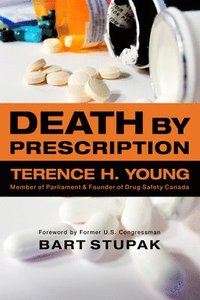
Our news is filled with the shooting in the Canadian Parliament on Wednesday, overshadowing something pretty important that happened there on Thursday.
Bill C-17 passed its third and final reading in the Canadian Senate and will become Vanessa’s Law after receiving Royal Assent. In case you don’t know or have forgotten this story and sponsor Terence Young, here’s a reminder:
- doing the right thing…
- a missing link…
- Terence Young MP…

In particular, 2. discusses the important amendments added to it that make it model legislation for drug safety and clinical trial transparency. So there may be disappointment in the EMA/EU approach so far, but Canada’s about to lead the way down the road we all need to travel. My congratulations to Terence Young MP and his monument to his daughter, dead at 15 from an adverse drug reaction…
 Our news is filled with the shooting in the Canadian Parliament on Wednesday, overshadowing something pretty important that happened there on Thursday. Bill C-17 passed its third and final reading in the Canadian Senate and will become Vanessa’s Law after receiving Royal Assent. In case you don’t know or have forgotten this story and sponsor Terence Young, here’s a reminder:
Our news is filled with the shooting in the Canadian Parliament on Wednesday, overshadowing something pretty important that happened there on Thursday. Bill C-17 passed its third and final reading in the Canadian Senate and will become Vanessa’s Law after receiving Royal Assent. In case you don’t know or have forgotten this story and sponsor Terence Young, here’s a reminder:  In particular, 2. discusses the important amendments added to it that make it model legislation for drug safety and clinical trial transparency. So there may be disappointment in the EMA/EU approach so far, but Canada’s about to lead the way down the road we all need to travel. My congratulations to Terence Young MP and his monument to his daughter, dead at 15 from an adverse drug reaction…
In particular, 2. discusses the important amendments added to it that make it model legislation for drug safety and clinical trial transparency. So there may be disappointment in the EMA/EU approach so far, but Canada’s about to lead the way down the road we all need to travel. My congratulations to Terence Young MP and his monument to his daughter, dead at 15 from an adverse drug reaction…
Hooray for Terence Young, success after 14 long years of toil. As ever, Canada is more civilized than the US.
Here is his speech in support of Vanessa’s Act http://www.terenceyoung.com/event.php?id=vanessa_law2
Terence Young’s site Drug Safety Canada seems to have disappeared. According to http://wp.rxisk.org/sudden-cardiac-death-vanessas-story/, its position was:
We believe that prescribing a drug safely should include the doctor’s full medical understanding of two things:
– the true risks of the drug for each patient, taking into consideration not just their symptoms but their condition, age, sex and all other drugs and natural health products they are taking, along with foods they are consuming.
– the proven efficacy of the drug for that patient, using the best available objective evidence based on reports of adverse reaction injuries and deaths in every country where the drug is marketed….
for which I have repeatedly argued here (and elsewhere) regarding psychiatric drugs, and been bashed for it.
We cannot trust what we’re told by drug companies about drug risk. We cannot leave corrective actions for pharmaceuticals up to the free market. Patients need regulatory protection and post-marketing surveillance.
In the meantime, it is the responsibility of individual physicians to give credence to a patient’s report of adverse reactions — even it isn’t in the literature — and reduce drug exposure accordingly.
I agree completely, Alto. All drugs that we’ve been using for the last twenty years need to be studied, as well.
Mickey,
I don’t get it.
How is Canada’s political solution going to be superior to America’s political solution? As I read though the Canadian law (almost as unreadable as American versions) it seems to concentrate power in fewer hands. In fact, pharmacovigilance and pharmacosurveillance exists in the USA and it effectively removes “dangerous” drugs from the market. Exactly how dangerous a drug is has always been a combination of scientific and political factors.
There is no doubt that Big Pharma has put out some intellectually dishonest research, but there is also no doubt that FDA approved package inserts in this country contain the relevant side effects no matter how severe and that they are regularly updated. There is also no doubt that equal standards do not seem to be applied across all medication classes and I would cite the FDA letter on the QTc interval for citalopram as being a probable case in point.
In the last 30 years 118 of 740 drugs were withdrawn from the US market and 26/118 or 3.5% were withdrawn for safety reasons:
http://real-psychiatry.blogspot.com/2014/02/dangerous-medications-part-one.html
“In the meantime, it is the responsibility of individual physicians to give credence to a patient’s report of adverse reactions — even it isn’t in the literature — and reduce drug exposure accordingly.”
And the patient would “know” this is an adverse reaction vs. an unrelated symptom….how? By their “expertise”?
So If I give an SSRI and the patient “thinks” they have a plantar fasciitis as a result, I should reduce the dose?
That’s not critical psychiatry, that’s flat out antiscience and worshipping the post hoc fallacy. Which is going to shut down medical treatment of all kinds if taken seriously.